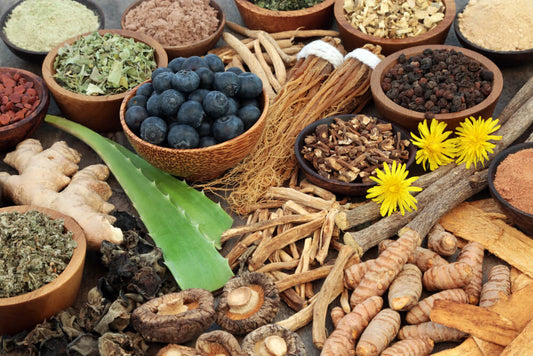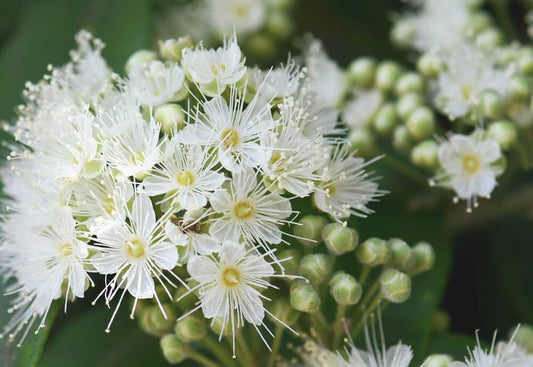
Chaga: A Fungus with Ancient Roots and Modern Wellness Appeal
Have you ever heard of a superfood that looks like a gnarled black growth clinging to a birch tree? That's chaga, a fascinating fungus with a long history in traditional medicine and a recent surge in popularity as a potential health booster.
But is this ancient remedy truly a modern-day superfood?
Let's delve into the world of chaga, exploring its origins, its rise to fame, and the potential benefits it offers.
Siberian Secrets: A History of Use
The story of chaga likely began in Siberia, where the Khanty people used it around the 12th century to treat various ailments like coughs and stomach ulcers. The word "chaga" itself might be derived from a Russian word meaning "scaly" or "pustular," reflecting the fungus's unusual appearance. Historical evidence suggests chaga was also used in other parts of Northern Europe and Russia, showcasing its longstanding presence in traditional medicine.
Why Chaga is considered a superfood
While chaga's roots are firmly planted in history, its superfood status is a recent development. The exact timeline is unclear, but it likely gained traction in the late 20th or early 21st century. Two main factors fuelled this rise:
- Intriguing Chemistry: Chaga is packed with antioxidants, compounds that may help protect cells from damage. This antioxidant profile aligns perfectly with the current focus on healthy eating and disease prevention.
- Limited Research, Big Claims: Unfortunately, scientific research on chaga's health benefits is still in its early stages. While some studies show promise, many claims about chaga as a superfood lack strong scientific backing.

Why Consider Chaga?
Despite the lack of conclusive evidence, some potential benefits make chaga an intriguing addition to a wellness routine:
- Boosting the Body's Defences: Chaga is rich in polysaccharides, complex sugars that might stimulate the immune system. Early research suggests it could offer some immune support, potentially helping your body fight off common illnesses.
- Balancing Blood Sugar: Some preliminary studies hint at chaga's potential to help regulate blood sugar levels. However, more investigation is needed in this area. It's important to remember that chaga should not be considered a replacement for prescribed medications for diabetes.
- Promoting Overall Wellness: Traditionally, chaga has been used to address various ailments. While scientific evidence is limited, some users report experiencing a general sense of well-being after incorporating chaga into their routine. This could be due to the combined effects of chaga's various properties, including its antioxidant content and potential immune-supporting benefits.
- Exploring the Potential for Inflammation: Chronic inflammation is linked to various health concerns. Early research suggests chaga's antioxidant properties might help combat inflammation, although more studies are needed to solidify this connection.

Adding the Versatile Chaga to Your Diet
Intrigued by the idea of incorporating chaga, the enigmatic fungus with a history steeped in tradition, into your wellness routine? Here's a breakdown of the various ways you can add chaga to your diet, along with some tips to tailor the experience to your taste preferences.
The Alluring Aroma of Chaga Tea:
For those who enjoy the ritual of brewing a cup of tea, chaga offers a unique earthy experience. While dried chaga chunks require simmering for several hours to extract their full potential, a shorter simmer can yield a milder brew for beginners. Feel free to experiment with the steeping time to find your perfect balance of flavour and strength. For a touch of zest, consider adding a squeeze of lemon, a sliver of ginger, or a hint of honey to enhance the taste profile.
The Convenience of Chaga Tinctures:
If you prefer a more convenient way to consume chaga, tinctures offer a concentrated liquid extract. These typically come with a dropper, allowing you to easily control the dosage and integrate chaga seamlessly into your daily routine. However, keep in mind that tinctures tend to be more concentrated compared to other forms of chaga.
Culinary Creativity with Chaga Powder:
For the culinary adventurer, chaga powder unlocks a world of possibilities. Ground chaga powder can be sprinkled into smoothies, soups, or even baked goods, adding a subtle earthy depth to your favourite recipes. Start with a small amount and gradually increase based on your taste preference. The earthy notes of chaga powder can be strong, so a little goes a long way in creating a delicious and health-conscious dish.
Remember: Regardless of the form you choose, it's crucial to source your chaga from a reputable vendor that prioritises organic, wild-crafted options. This ensures you're getting a high-quality product with the potential health benefits associated with chaga.

The Final Sip: Ancient Wisdom Meets Modern Exploration
Chaga's long history of use and potential health benefits make it a fascinating addition to the superfood conversation. While research is ongoing, it's important to remember that chaga is not a magic bullet. A balanced diet and healthy lifestyle are essential for overall well-being.
Ready to Explore Chaga for Yourself?
Superfoods Australia offers a range of high-quality chaga products, including organic powdered extract, capsules, tinctures, and mushroom coffee elixirs. Discover our entire range of Chaga mushroom products available Australia-wide here.













